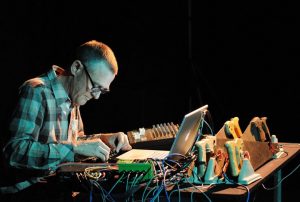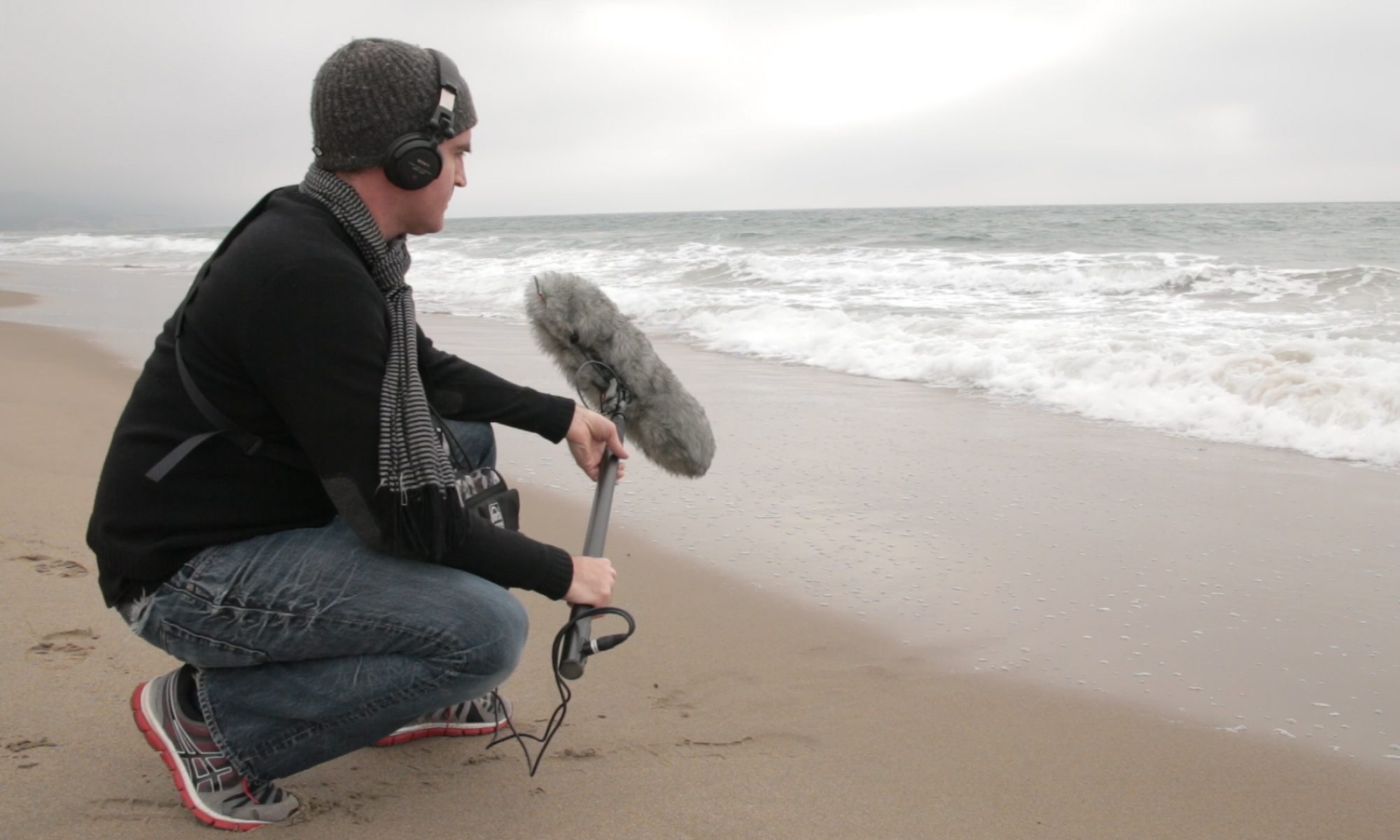Last night I attended a memorial concert for Mark Trayle at Mills College in Oakland. Mark was my mentor while I was in graduate school at CalArts many years ago. He passed away from pancreatic cancer just before he was scheduled to play on the Electroacoustica festival that I produced at Foothill in April 2015. The memorial concert was exactly what I expected knowing Mark’s work and the quality and sensitivity of the performers gathered from both CalArts and Mills. (For those who don’t know, those two institutions share a very close relationship between their music departments…) The five compositions on the concert were all typical of Mark’s work: smart, challenging, and wildly creative. The whole experience got me thinking about my time with Mark and what made him such a valuable mentor.

You see, I spent my undergraduate years in a (much) more traditional musical environment at Oberlin. I was studying electronic and computer music, so you have to understand that “traditional” is a relative term here, but the program was focused on classical electronic music of the mid-20th century. On the other hand, the graduate electronic composition program at CalArts was completely open, aside from the fact the graduate composers were expected to do something unique and forward-thinking. It was the perfect move for me because I did have a solid foundation from Oberlin, but was looking for a way to define my own style. CalArts also emphasized solo and small ensemble performance which was very practical for composers about to set off on their own.
Anyway, Mark was one of the reasons I was attracted to the program when I interviewed at CalArts. He just seemed so smart and relaxed and friendly. Subsequently, my private composition lessons with him were the highlight of my two years there. Unlike my undergrad composition lessons, which felt more like receiving a stern lecture from a grumpy grandfather, Mark was very down-to-earth and supportive. We would rarely meet in his office; we typically went down to the campus coffee house to get espresso which we would sip while walking around the campus. Pretty funny when you consider that we were talking about computers and software and building unusual control interfaces that often required soldering. But it was exactly what I needed at the time. He was open to anything, never laughed at my crazy ideas, and pushed me to collaborate with everyone and create as much music as possible. Above all, he taught my by his example that creative success required hard work and that the creative process should be taken very seriously. Oh and that it was OK to walk around and drink coffee and stare at trees while you thought about your next project.
And there’s another reason I’ve been thinking about Mark since his death. When I arrived at CalArts, Mark was beginning his second year there. But the interesting part is that it was his second year in academia after about 20 years in the corporate world. At that time, Mark was in his early 40s, with a wife and a young son, and he had just left a (potentially) more lucrative career in the Bay Area to take a position at CalArts. My current situation is oddly similar; I spent about 15 years in the corporate world, alternating between creative and technical work, before I had the incredible fortune of finding a full-time faculty position. And, I’m about the same age that Mark was back then. It gets you thinking about cycles and mortality and all that deep stuff.
I don’t have private composition students at Foothill, although I hope that some day I will. But I do mentor students on a regular basis. I just hope that I can inspire and encourage my students the way that Mark did for me and many others.
